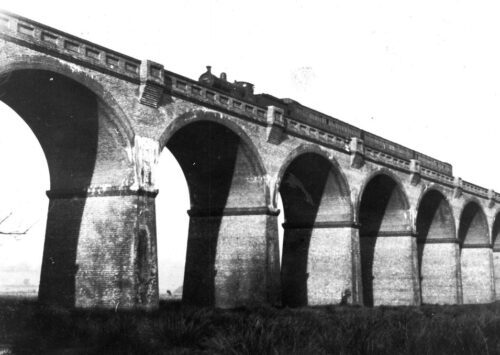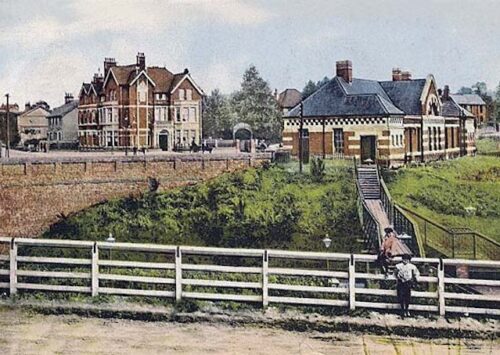Until the 1880s, Bexhill was just a small, hill-top village, not far from the sea and having an old church and an ancient manor house. It looked down onto the old, white Coastguard Station and the Channel. Between it and St. Leonards were not more than half-a-dozen houses. It’s changed quite a bit over the years though many of the old buildings still exist. Because of the extensive building that took place on the coast, in the 1880s, it became known as “Bexhill Old Town”.
In those days, if you wanted to get anywhere, the ordinary person would have to go on foot – if you were a farmer, perhaps, you go by horse or horse and cart. The wealthier people of the village had their own carriages or used “horse cabs”, much as we use taxis, today. Later, a few of the richest people, the large land owners such as the Earl De La Warr, could afford one of the new “horseless” carriages, the forerunner of the modern car but there were so few of these that number plates had not even been thought of.
There were “carriers”, people with horse-drawn carts, who, for a price, carried other people’s goods between the local, larger villages and towns – carriers from Hooe, such as John Errey, from the “Rising Sun” inn (Tuesday & Saturday), Samuel Sargent (Tuesday & Saturday), John Barton (carrier & coal dealer, in the 1891 and 1901 censuses) who went through to Hastings on three days a week. Also from Hooe, Mrs. Mary Sargent (Tuesday & Saturday) and Mrs. Elizabeth Gander, daily (except Sunday & Thurs.)
Then, there was Thomas Mitten, of Little Common (Tuesdays & Fridays) whose dog it was said, was always trotting beneath the axles and Henry Allcorn, from Herstmonceux, who came daily.
On 13th April, 1900, which was Good Friday, a Ben Burbridge of Hastings gave the first pleasure trips in the area. The passengers travelled in a “motor waggonette”, he owned and drove. The trip, initially, went from Hastings to Bulverhythe but was extended, later, as far as the “Bell Hotel” in Bexhill Old Town due to its obvious popularity. The fare was rather expensive at two shillings (10p) return and, strangely, no passengers were allowed to start their journey in Bexhill.
With the building of the new town of Bexhill-on-Sea, in the 1880s, and the demands of people and business, transport began to change and grow.



